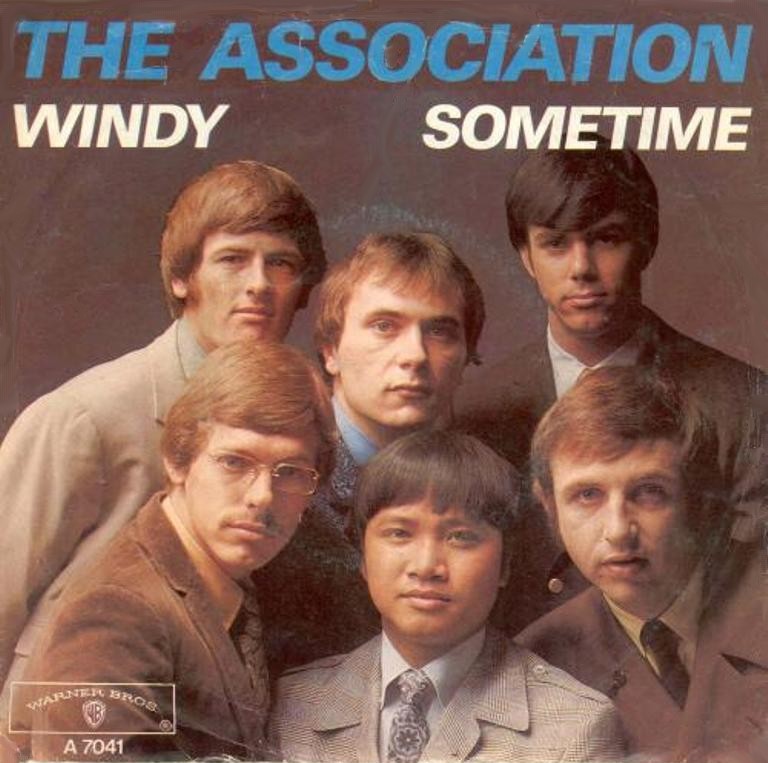July 1, 1967
- STAYED AT #1:4 Weeks
In The Number Ones, I'm reviewing every single #1 single in the history of the Billboard Hot 100, starting with the chart's beginning, in 1958, and working my way up into the present.
The Summer Of Love, as those who were there will never get sick of reminding us, was a moment of vast social and cultural upheaval. Hippies converged upon San Francisco and rioted in New York's Tompkins Square Park. The Beatles released Sgt. Pepper's Lonely Hearts Club Band. LSD experimentation was widespread, and so was youthful opposition to the Vietnam War. What people never mention about the Summer Of Love, though, is that a song that sounds like game-show music spent a pretty good chunk of that summer at #1.
Ruthann Friedmann, a folk musician who bounced back and forth between San Francisco and Los Angeles and who met the Association through their mutual friend Van Dyke Parks, wrote "Windy." She'd written it about a man -- not a real person but a sort of idealized character who she'd imagined. The Association changed the gender, switched up the time signature, and added the ba ba bas. They turned it into a pop song -- which, for all its of-the-moment overtones, is exactly what it is.
The Association's "Windy" could've only come out in 1967. The song was in tune with its moment. It's full of psychedelic touches, both musical and lyrical. It's a whimsical swirl of harpsichords and recorders and shimmering harmonies. The song never quite spirals off into infinity; it's anchored by a steady four-four beat and what sounds like a mutated surf-guitar riff. But the band piles on the harmonies and orchestral fripperies, to the point where the song sounds like it's ready to leave Earth by the time it fades out.
Lyrically, the song tells the story of a girl who's "reaching out to capture a moment." There's no real libido to the song. Instead, it's written from a place of affection. And there's plenty of barely disguised drug imagery in the song. The Windy in question is "tripping down the street of the city, smiling at everybody she sees." She has "wings to fly above the clouds." (She also has "stormy eyes that flash at the sound of lies," which is a cool lyric.) It's easy to visualize this Windy and to situate her in the time's cultural zeitgeist.
And yet this whole dizzy and complex track is built around a dinky, nagging melody -- the sort of thing that's practically begging to be remade as elevator music. That central hook will mercilessly consume your entire brain if you let it. And while there's plenty of impressive stuff happening on "Windy," I just can't stand that central hook. It's a personal thing. The thing just bothers me. There's nothing wrong with "Windy" other than how that melody makes me feel. But this is the song that kept Frankie Valli's "Can't Take My Eyes Off You" out of the #1 spot. That song has aged fantastically. "Windy," on the other hand, remains tied to its moment forever.
GRADE: 5/10
BONUS BEATS: In December of 1976, the Sex Pistols appeared on the UK version of the Today show -- an incident that became notorious when guitarist Steve Jones called interviewer Bill Grundy a "dirty fucker" and "fucking rotter." At the end of the interview, the band and their friends (including Siouxsie Sioux and a guy in a swastika armband) danced to the Today theme music, which was a cheesed-out instrumental version of "Windy." Here's that interview:
BONUS BONUS BEATS: A 2010 episode of Breaking Bad opened with a montage about the life of a meth addict named Wendy, set to "Windy." Here's that montage:






